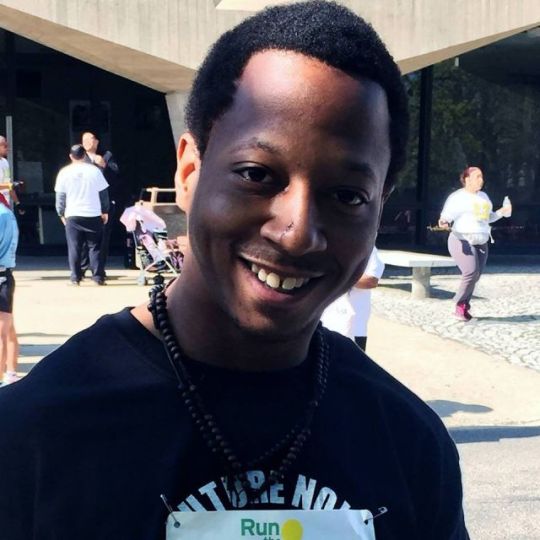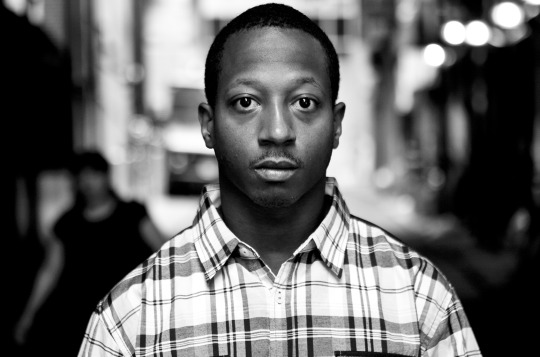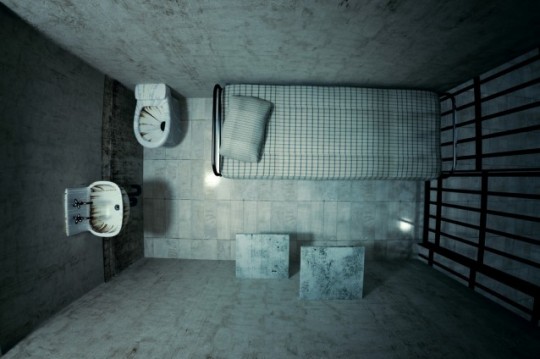Text
Kalief Browder and the State of American Prisons
It is, by no means, news that the United States’ prison system is fundamentally broken in essentially every conceivable aspect. However, in almost every instance, issues in the current system are addressed with cold hard statistics and empty numbers on a page, creating a noticeable emotional disconnect between readers and victims of the prison system. We hear about death, injustice and cruelty by the numbers. The statistics tell us how many prisoners suffer from serious mental health issues, how many are beaten and abused daily, but the numbers don’t register in the hearts of many readers. Most people who see these statistics agree that something in our prison system is flawed, yet move on and simply shrug it off. They never fully grasp what these statistics are saying; how they affect human lives each and every day. There is a serious emotional depth present in the life of every individual tormented by the prison system that can’t be simply carved down to a few numbers on a page. The people affected by prisons aren’t statistics, they are human beings with deep emotional complexities and stories. This paper aims to argue against the current state of our country’s prison system, not only with these familiar statistics that have been published time and time again, but in an emotionally moving way that will hopefully trigger feelings of empathy, sorrow and a desire for a change in the system. In this piece, we will follow the life story of Kalief Browder, an innocent boy who was robbed of his will to live for a crime he did not commit by a prison system which fails to recognize the true definition of the word justice.

(Picture of Kalief Browder)
A source at Flavorwire says Browder was born May 25, 1993 in the Bronx, New York City, NY and was shortly moved into the care of Child Protective Services shortly after birth due to his biological mother’s drug habits, and was the youngest out of seven siblings. He soon became the fifth and final child of an adoptive family where he lived in a two-story house of bricks on Prospect Avenue near the Bronx Zoo. Although he moved out when Browder was ten, his father did, in fact continue to support the family financially.
Browder went on to attend the New Day Academy, where he told The New Yorker’s Jennifer Gonnerman he received mostly C’s on his reports yet was described by all of his teachers as a “fun guy” and a very bright young man. He enjoyed Pokémon, televised wrestling, sports and even occasionally visiting the nearby zoo.
Deion, his brother, described him as someone who had an immense passion for life and was always ready to talk for hours on end sharing his thoughts. One of his other brothers, Kamal would agree. He described Browder as determined and energetic and fun. Nicole described his endearingly “annoying” laugh as one of the most beautiful and memorable things about him. When they were very young, the two would play and often chase one another around the house. The young Browder found joy in playing basket ball with a brother of his, Raheem and throwing snowballs at cars with his friends David and Tyrone. The three of them would often play various sports and video games together “just like regular kids,” as stated in Time’s Netflix documentary.

(The Bronx Zoo, one of Kalief Browder’s favorite places as a child)
An academic article from the University of Miami Law School reports that early in the morning, May 15th, 2010 Browder and a friend of his were walking through the Bronx, making their way home from a party. The boy was only sixteen years old as he walked down Arthur Avenue in Little Italy. Out of nowhere a police car rushed towards them and quickly halted. It was followed shortly by more police units. An officer stepped out of the vehicle to inform the two boys that were now suspects in a recent robbery. Kalief responded with the truth: “I did not rob anyone,” he continues “you can check my pockets.” The officers proceeded to search but found absolutely nothing. After this, one officer made his way back to his squad car a reported to his fellow officers what was far from the truth. He told them that Kalief had just admitted to robbing the man “two weeks ago.” The two boys were then arrested right then and there. They were charged with grand larceny, robbery, as well as assault. Kaliefs bail was then set at $3,000.00, which his mother couldn’t even hope to raise. She could not free her son from a crime he did not commit. Kalief, still only sixteen ended up in a Correctional Department bus.

(Picture of Kalief Browder)
While waiting to see trial, Browder spent several whole years restricted against his will in a prison, two of which he spent in solitary confinement. During this time, he suffered endless and brutally constant beatings from both inmates and guards. Browder didn’t see trial. He never underwent a hearing; he never sat in a courtroom seeing evidence being presented in an effort to preserve his freedom. He never saw justice. While confined, Browder was isolated, with little to no human contact for two entire years. This is a cruel and unusual punishment that is incredibly damaging, psychologically and was not designed by mental health experts. He was made to accept his conditions despite the lack of opportunity given to him to testify, fight for his freedom and prove his very own innocence.

(A prison cell)
According to Safe Journals, most prisoners in solitary confinement are shackled, sometimes even put in a leash and escorted into their cell, where they remain restrained and are never in any presence with others, including therapists and psychiatrists. Prisoners in this situation don't see the sunlight except in some rare cases, when they are released into unimaginably small, cement-walled areas where they get quick glimpses of sunlight and terrain through small holes in the fences and walls that confine them if they're lucky. They are monitored, only through camera and intercom rather than direct contact with officers.
Prisoners are usually placed in supermax solitary confinement are not there for actions they have taken, but instead for what officers with no psychiatric training or knowledge have identified them to be; dangerous, disruptive, etc.
Now this is where mental health issues came into play. Browder had faced confrontation with the unthinkable, which alone is incredibly harmful to the human psyche. He faced jail time, solitary confinement, beatings and essentially torture towards his physical and mental self for a crime he never committed, a crime that he was not even aware of until accused. The shock of this sudden transition that seemed so unlikely and even surreal was maddening to Browder, as it would have been to anyone. When he was finally released, Browder reported that he was “afraid of being attacked on the subway” and that his television was “watching him.” He feared going outside of his own house because he worried for his safety and felt he would be attacked. He was no longer concerned for his future, he went through the days feeling hopeless and entirely empty, and eventually on the 6th of June, 2015 at mid-day Browder “went into another bedroom, pulled out the air conditioner, and pushed himself out through the hole in the wall, feet first, with a cord wrapped around his neck.”
The prison system which convicted him despite his innocence, broke Browder. It robbed him not only of justice, but of his will to live. And he wasn’t the only one. According to the National Alliance on Mental Illness, roughly 15% of men as well as 30% of women incarcerated have urgent mental health conditions. A noticeable majority of people in jails have never even been given the right to see trial, and almost all of the other individuals in prisons have been convicted of extremely minor crimes. In jails, people don’t receive any treatment that they require in order to heal, mentally. Instead, they are abused by a system that shamelessly prides itself on its ability to “break” people rather than help those that need it. Had any mental health professionals seen Browder while he was in prison, before he was sent to solitary confinement, he likely would have been diagnosed as a healthy young boy and given a lighter sentence accordingly. However, our prison system is one of a dystopic nature. It abuses and dehumanizes those who fall into its grasps, deteriorating them from the inside like the cold, beast of a creature that it is underneath it’s pretentious façade of a facility capable of bettering society and solving any real issues regarding crime.
0 notes